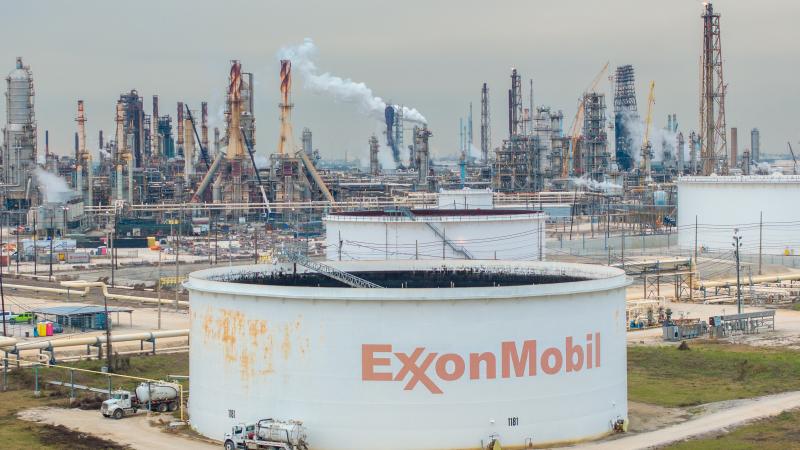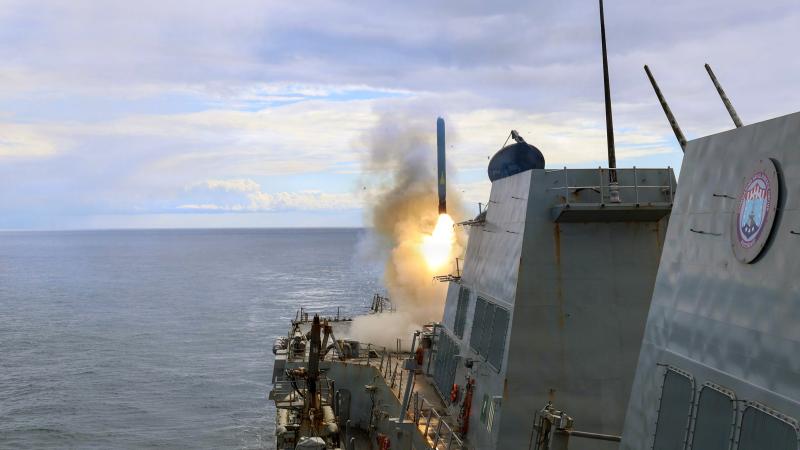Invasion Averted: Venezuela vows not to use force to settle dispute with Guyana
The threat of invasion even prompted the U.S. military to conduct air force drills with Guyana in South America, sending a veiled warning to Caracas that Washington would intervene if Venezuela deployed military forces.
The Venezuelan Maduro regime has agreed to not “use force” to settle its dispute with the government of Guyana over the oil-rich region of Essequibo.
The peace agreement comes weeks after tensions rose between the two nations when Nicolás Maduro held a referendum vote asking Venezuelans if they believed their country had a legal right to the Essequibo region.
The threat of invasion even prompted the U.S. military to conduct air force drills with Guyana in South America, sending a veiled warning to Caracas that Washington would intervene if Venezuela deployed military forces.
The 160,000 sq-km jungle region in question covers two-thirds of Guyana’s territory.
Maduro’s referendum vote came back supporting Venezuelan sovereignty, which Maduro has used as a trigger to suggest he has legal and moral justification to use military force to invade and annex the region.
However, after a meeting between Guyanese President Irfaan Ali and Maduro, the communist dictator reaffirmed his commitment to maintaining peace in the South American region.
Maduro described the meeting as an “excellent day of dialogue” in a statement he released on X, the social media platform formerly known as Twitter.
The two leaders met in St. Vincent and the Grenadines and signed a three-page joint declaration, which says they will “not threaten or use force against one another in any circumstances” and would “continue dialogue.”
A social media post on Facebook published by sponsored by Guyanese President Irfaan Ali says the conference was sponsored by the Caribbean Community (CARICOM), an intergovernmental organization with 14 member states that coordinates political and economic development in the region.
The agreement also established a joint commission to address future disputes over the Essequibo region. The two are scheduled to meet again in neutral territory in Brazil to discuss the contested area.
The Essequibo region has been the subject of a century long territorial dispute between the two countries dating back to the late 19th century.
Guyana has long said the issue is scheduled to be resolve by the U.N.’s International Court of Justice in The Hague, but Maduro refuses to recognize the jurisdiction of the ICJ.
While the dispute over the region has gone on for more than a century, the Maduro regime was virtually silent on the issue until 2015 when Exxon Mobil and Chevron discovered oil off its coastline.
The communist dictator renewed Venezuela’s interest in the claim even though Guyana already negotiated deals with investors including oil and gas giants Exxon Mobil and Chevron.
“Guyana is not the aggressor, Guyana is not seeking war, but Guyana reserves the right to work with all our partners to ensure the defense of our country,” Ali said during the meeting.
Guyana has a successful economy, part of which can be attributed to its offshore oil reserves. By 2027, the country expects to triple its petroleum output to more than 1.2 million barrels a day, according to an Oct. 26 report published by Reuters.
Guyana’s communist neighbor to the south has the largest oil reserves in the world but is amid a devastating economic failure that has driven millions into self-imposed exile.
Many of those Venezuelans seeking to escape poverty and rampant inflation have risked their lives to cross the Darién Gap jungle land bridge connecting Colombia and Panama to make their way to the United States.
Crossings became so frequent that the Panamanian government took steps to shut down the land bridge.
Their efforts to reach the U.S. are a significant part of what has caused the crisis at the southwest border and a surge in asylum applications that has created a backlog within the immigration system.
In October, ADN reported that the Venezuelan immigration crisis sent so many migrants across the Darién Gap and U.S. border that the Biden administration resumed deportation flights back to the South American country, marking a significant shift in policy.















